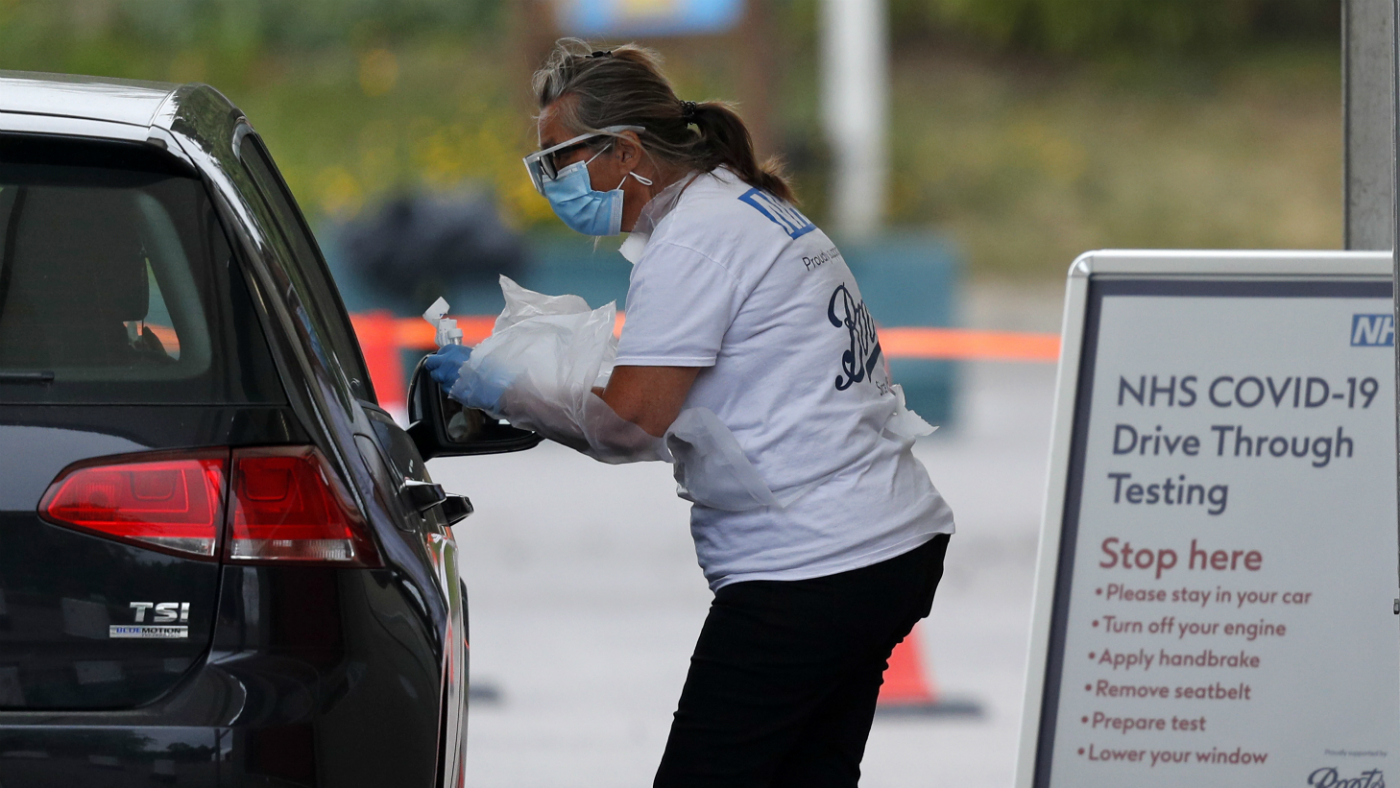Test and trace: how the system is changing
Government replacing thousands of call-centre workers with ‘boots on the ground’ following flawed roll-out

A free daily email with the biggest news stories of the day – and the best features from TheWeek.com
You are now subscribed
Your newsletter sign-up was successful
Thousands of staff at “test-and-trace” call centres are to be axed and replaced with local tracking teams, the government has announced.
The “major overhaul” of the “failing” system will see “council staff knocking on doors” in a bid to reach more contacts of people who have tested positive for the Covid-19 coronavirus, The Telegraph reports.
Health minister Edward Argar told the BBC that the new approach would combine the “scalability” of a national scheme with the expertise and local knowledge of local public health officials.
The Week
Escape your echo chamber. Get the facts behind the news, plus analysis from multiple perspectives.

Sign up for The Week's Free Newsletters
From our morning news briefing to a weekly Good News Newsletter, get the best of The Week delivered directly to your inbox.
From our morning news briefing to a weekly Good News Newsletter, get the best of The Week delivered directly to your inbox.
“We’ve always said that this system would evolve, and what it’s doing here is exactly that: evolving and flexing,” he said.
What are the current issues with the test and trace system?
The NHS test-and-trace system relies on call centre-based contact tracers who attempt to reach people who have been in close contact with confirmed coronavirus carriers, usually by text, email or up to ten times by phone call.
However, reports surfaced in July that the £10bn scheme was failing to reach thousands of people, including many in areas with the highest infection rates in England. The Telegraph reports that on average, tracers in call centres are reaching just one case a month.
A free daily email with the biggest news stories of the day – and the best features from TheWeek.com
A number of issues have been blamed for these low success rates. Councils have warned that many so-called contacts are rejecting attempts to contact them because they assume the unfamiliar “0300” number is a cold caller.
Experts have also pointed to language barriers and missed emails as major stumbling blocks in many of the worst-affected towns, where “in some cases the virus is disproportionately affecting people of south Asian heritage”, The Guardian reports.
So what exactly is planned?
The overhaul of what Boris Johnson promised would be a “world-beating” test-and-trace system follows widespread criticism of the costly programme.
Around 6,000 of the current 18,000 call handlers will be axed in favour of a “boots on the ground” approach that will see council workers going to the homes of people who fail to respond to calls warning that they may have been exposed to the virus.
The remaining contact tracers will work alongside the local public health teams.
Dido Harding, chair of NHS Test and Trace, said on Monday that the plan followed “successful trials in a small number of local areas”.
-
 ‘This is something that happens all too often’
‘This is something that happens all too often’Instant Opinion Opinion, comment and editorials of the day
-
 House votes to end Trump’s Canada tariffs
House votes to end Trump’s Canada tariffsSpeed Read Six Republicans joined with Democrats to repeal the president’s tariffs
-
 Bondi, Democrats clash over Epstein in hearing
Bondi, Democrats clash over Epstein in hearingSpeed Read Attorney General Pam Bondi ignored survivors of convicted sex offender Jeffrey Epstein and demanded that Democrats apologize to Trump
-
 How corrupt is the UK?
How corrupt is the UK?The Explainer Decline in standards ‘risks becoming a defining feature of our political culture’ as Britain falls to lowest ever score on global index
-
 The high street: Britain’s next political battleground?
The high street: Britain’s next political battleground?In the Spotlight Mass closure of shops and influx of organised crime are fuelling voter anger, and offer an opening for Reform UK
-
 Is a Reform-Tory pact becoming more likely?
Is a Reform-Tory pact becoming more likely?Today’s Big Question Nigel Farage’s party is ahead in the polls but still falls well short of a Commons majority, while Conservatives are still losing MPs to Reform
-
 Taking the low road: why the SNP is still standing strong
Taking the low road: why the SNP is still standing strongTalking Point Party is on track for a fifth consecutive victory in May’s Holyrood election, despite controversies and plummeting support
-
 What difference will the 'historic' UK-Germany treaty make?
What difference will the 'historic' UK-Germany treaty make?Today's Big Question Europe's two biggest economies sign first treaty since WWII, underscoring 'triangle alliance' with France amid growing Russian threat and US distance
-
 Is the G7 still relevant?
Is the G7 still relevant?Talking Point Donald Trump's early departure cast a shadow over this week's meeting of the world's major democracies
-
 Angela Rayner: Labour's next leader?
Angela Rayner: Labour's next leader?Today's Big Question A leaked memo has sparked speculation that the deputy PM is positioning herself as the left-of-centre alternative to Keir Starmer
-
 Is Starmer's plan to send migrants overseas Rwanda 2.0?
Is Starmer's plan to send migrants overseas Rwanda 2.0?Today's Big Question Failed asylum seekers could be removed to Balkan nations under new government plans